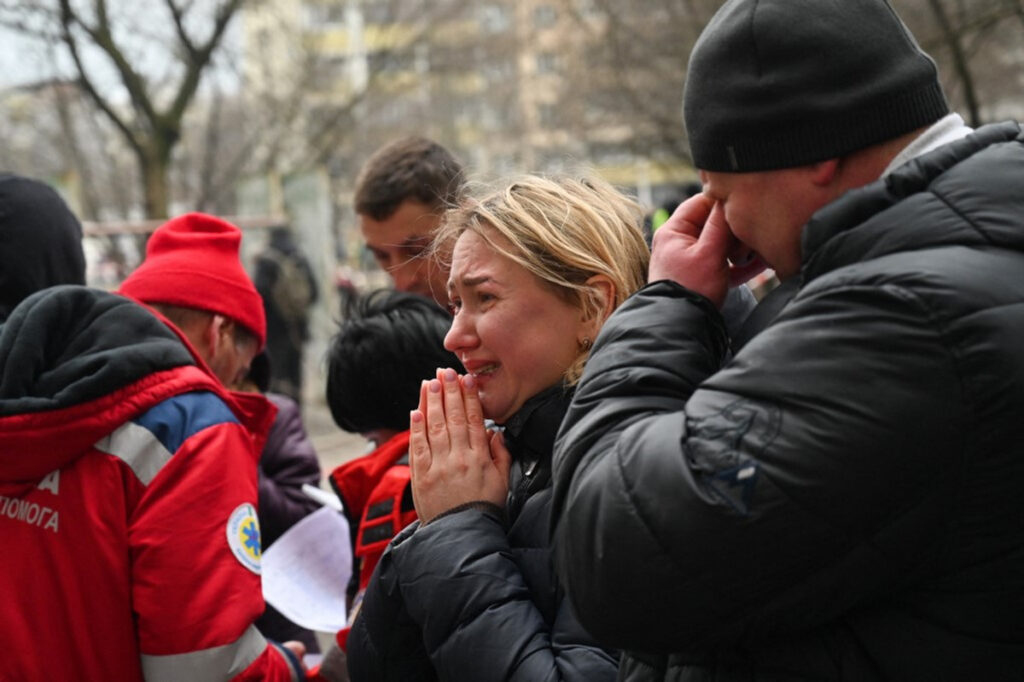At a time when global challenges are converging and putting unprecedented pressure on humanity, mental health issues are in the spotlight. It becomes more than just an individual need, it becomes an important element of global development. Particularly in Ukraine, where war has left deep and invisible scars, mental health support is essential to the country's future. And it is we Ukrainians who have to look for new approaches in this field.
Today, mental health issues are one of the biggest global challenges on earth, along with inflation, climate change, poverty, poor health and war. This is evidenced by the results of his September 2023 survey conducted by Alligator Digital. Experts estimate that 40 to 50 percent of the population needs or will need mental health help. Among combatants, this number is even higher. According to an anonymous survey of military veterans conducted by the Ukrainian Veterans Fund, two-thirds of those who returned home faced psychological difficulties in civilian life.
Moreover, mental health disorders have a more devastating impact on individuals and society in general, even compared to war or disease. As a result of all other negative factors, mental health disorders have become an obstacle that prevents humanity from addressing other global challenges. Therefore, maintaining mental health is the main task of each of us.
Today, I can say that we have the most promising answer to a recruiter's question, “Where do you see yourself in five years?” is “common sense!”

Other interesting topics
February 24, 2022 What it means to us – Tsikhanouskaya, Kasparov, Asland, Kurkov
Two years later, he became a leading Belarusian and Russian politician and economist. and famous authors comment on what Russia's full-scale invasion of Ukraine would mean for them.
invisible scars of war
According to the International Organization for Migration, more than 15 million Ukrainians are in need of psychological and psychiatric assistance in connection with the Russian invasion.
But it seems to me that the real number is much higher. There is no one today who does not feel sad or stressed, who does not suffer from the loss of loved ones, family, home or work, who does not have a sense of fear, anxiety and uncertainty. This war came to everyone. After all, thanks to the Internet and social networks, it has turned from a very traumatic but distant event into an everyday reality for millions of people. Bucha, Irpin, Chernihiv, Dnipro, Odessa, Uman – the soul and heart can no longer endure all this pain and begins to look for ways to protect themselves from destruction. This is how psychological problems arise.
Finding ways to stay “sane” is necessary not only to maintain resource status and survive in difficult conditions, but also to support others. Because we have a lot of work to do. They work, they take care of their children, they write letters to their loved ones saying, “I love you, take care,” they donate to the military. And after the victory, there will be more to do. After all, our goal is a rich and prosperous Ukraine and a healthy and happy Ukrainian people.
Does a healthy mind reside in a healthy body?
But is it true that a healthy mind resides in a healthy body? We inherited this phrase from Soviet times, along with a negative attitude toward mental deviations. Going to a mental hospital meant an end to his career, and all he could do was talk about his personal problems with friends over a glass of wine. The entire educational system is built on hiding your emotions, not telling anyone about your personal experiences, “don't take trash out of the house,” etc. From an early age, boys are taught to “be strong” and not to cry. Girls, on the other hand, were taught to be tolerant and obedient to their elders.
Going back to the phrase “a healthy mind resides in a healthy body,” it originally sounds like “a healthy mind resides in a healthy body, which is a rare combination,” and it has almost the opposite meaning.
As a result of years of neglect of psychological problems and negative attitudes towards people with symptoms of mental disorders in our society, Ukrainians are not familiar with even the basic principles of psychological hygiene. We don't have a culture of consulting psychotherapists or talking about our feelings to anyone. As a result, they have a high divorce rate and many problems raising children.
Let's be honest: There are problems getting psychiatric and psychological help all over the world. Of the respondents in her 11 countries who participated in the Alligator Digital survey, 24% said they would not feel comfortable talking to a professional about their problems. The main reasons for concealing psychological deviations include “embarrassment,'' “damaging one's reputation at work,'' and “having trouble getting a job.''
We were just beginning to realize the need to take care of our mental health, because new challenges awaited us – war, which brought new problems of a psychological nature.
The difficulty here also lies in the fact that there are no books or methods to explain the psychological injuries sustained in hybrid warfare with today's level of information technology. We need to write these books, create methods, and help ourselves to help others.
One step at a time towards mental health
Treatment protocols for mental disorders include medication and talk therapy. While medications can relieve the acute phase, they can only provide temporary relief and in some cases lead to addiction, which can lead to bigger problems in the future. As for talk therapy, Ukrainians do not yet have the habit of consulting psychologists. And in Ukraine there are not many qualified specialists who can not only listen, but also carry out psychological correction. Therefore, the main task now is not to “give fish to the hungry,” but to teach them how to fish for themselves. As it turns out, there are easy and environmentally friendly ways to enable effective treatment of mental health disorders and reduce the negative effects of drug therapy. We're talking about meditation, breathing exercises, and physical exercise.
In an effort to help Ukrainian society resolve wartime mental health issues and accelerate post-war recovery, Impact Force launched the Restart Mindset Program. Its goal is to integrate military personnel, veterans, civilians and, in the first stage, women, who have suffered psychological trauma during war into normal life as quickly as possible.
I believe that together we can achieve success on this path. The fact that Ukrainians increasingly understand the importance of mental health and are seeking information on this topic further strengthens the optimism. We have high expectations for young people. 70% of 18-24 year olds surveyed by Alligator Digital believe their mental health will improve over the next three years. Society's attitude towards people with mental disorders is also undergoing a gradual change, with young people using words like 'strong', 'brave' and 'inspirational' to describe them.
Let's be strong, brave and inspire each other, because we are needed by ourselves, our relatives and our country. Together, we can build a Ukraine where mental health is a priority and support those who have been traumatized. It is a duty of all of us. This is how we will rebuild our country and guarantee a strong and healthy future for all Ukrainians.


